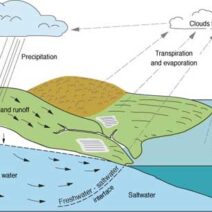As the sun sets on a pristine landscape, casting its golden rays over flourishing greenery, we are reminded that the Earth is a delicate tapestry—a complex interweaving of ecosystems and communities that depend on one another for survival. Yet, this vibrant panorama is increasingly obscured by the ominous haze of climate change. The question that resonates within this moment is: What can you do to help stop climate change? The answer lies in the perception that small acts can indeed catalyze substantial impact, much like the gentle ripple created by a single drop of rain in an expansive ocean.
To embark on this journey, it is imperative to acknowledge the mundane yet powerful actions that populate daily life. First, consider the boon of reducing energy consumption. By simply turning off lights when they are not needed or utilizing energy-efficient bulbs, individuals can not only diminish their carbon footprint but also save on electricity bills. The simple act of unplugging devices when not in use acts as a sturdy net, capturing energy waste before it transforms into greenhouse gases. This minimal effort resonates throughout the community, prompting others to adopt similar practices, creating a ripple effect of consciousness.
In a world increasingly choked by vehicular emissions, alternative modes of transportation present an enticing opportunity for change. Walking, cycling, carpooling, or utilizing public transport not only invigorate the body but also serve as a safeguard for the planet. Each pedal push or step taken lessens the demand for fossil fuels, echoing a commitment to sustainable living. The journey of a thousand miles begins with a single step, but this step can also represent a significant stride towards reducing our reliance on carbon-heavy transportation.
The culinary choices we make daily speak volumes about our commitment to the environment. The concept of a ‘plant-based revolution’ is not just a fleeting trend; it embodies a profound shift in how we perceive food consumption. By incorporating more plant-based meals into our diets, we are making a conscious effort to reduce the environmental strain associated with meat production, which is notoriously resource-intensive. Eating local and seasonal produce further magnifies this impact. Imagine the nourishment derived not just from food, but from a deep-rooted connection with local farmers, fostering community resilience and biodiversity.
Moreover, consider the transformative potential of reducing waste. The mantra of “reduce, reuse, recycle” is more than mere advice; it’s a clarion call to action. The art of minimizing waste extends to every facet of life—from utilizing reusable straws and bags to composting organic materials. By fostering a culture of mindfulness in consumption, communities can mitigate the overwhelming burden on landfills and the pollutants that arise therefrom. Such initiative encourages others to rethink waste production, akin to how a wildfire becomes subdued by controlled burns, transforming destructive energy into fruitful land.
Embracing the virtues of sustainability transcends individual action and calls for collective endeavor. Community engagement through local environmental groups can amplify one’s endeavors significantly. Whether participating in a tree-planting initiative, engaging in beach clean-ups, or advocating for legislation that prioritizes the planet, the synergy of collective action breeds optimism and progress. The merging of diverse voices can weave a narrative of resilience against the impending threat of climate change, much like a symphony resonates in harmonious accord.
Delving further into intricate practices, consider the investment in energy-efficient appliances and renewable energy sources. Transitioning to solar panels or wind turbines, as well as opting for Energy Star-rated appliances, transforms households into bastions of sustainable living. Such investments illustrate the interplay between personal finance and environmental stewardship, underscoring the prospect that fiscal prudence and ecological preservation are not mutually exclusive. In a society oftentimes blinded by immediate gratification, long-term thinking can foster enlightenment—a proverbial candle illuminating the shadows of ignorance.
The act of advocating for climate education deserves special mention. By nurturing awareness about climate change and its myriad consequences—whether through social media platforms, workshops, or casual discussions—we empower those around us to understand the gravity of the situation. Knowledge is a powerful catalyst; it motivates action and inspires innovation. Consider a world where the youth are equipped with the knowledge and skills necessary to combat climate change; this generation can emerge as formidable stewards of the Earth, shaping a future where sustainability reigns.
However, as we tread this path, it is vital to embrace self-compassion. The overwhelming nature of the climate crisis may incite feelings of helplessness. Recognizing that every small act contributes to a larger movement is essential. It is in this acceptance of one’s limitations and the celebration of small victories that the journey becomes both sustainable and fulfilling. Remember, each seed sown contributes to the grandeur of a flourishing forest.
Lastly, as the tides of climate change swell around us, let us embrace the metaphorical sails of innovation and tenacity. Every person, whether a solitary individual or part of a community, holds the power to navigate through these turbulent waters. Harnessing the essence of small, deliberate actions collectively poses a formidable response against the adversities posed by climate change. Indeed, these seemingly trivial efforts coalesce to create a formidable force, transforming the landscape of our planet. As we remember that profound change often starts as a mere whisper, let us collectively amplify that whisper into a resounding chorus that captivates the world.


